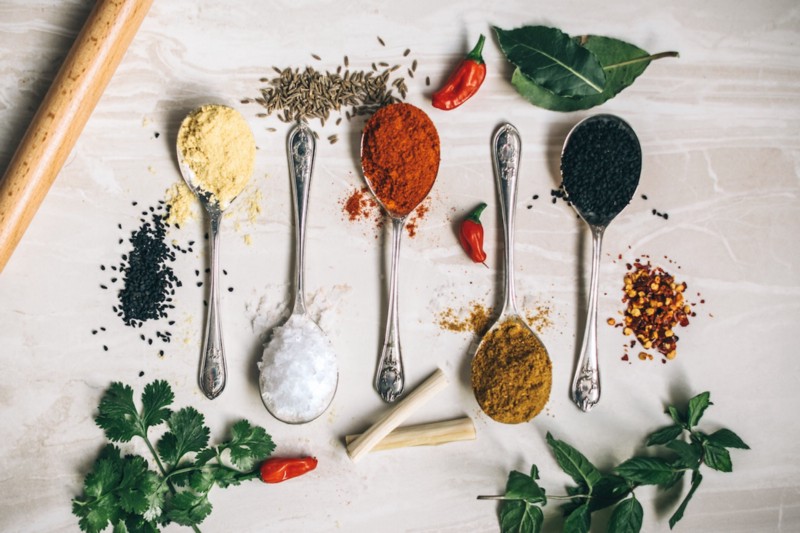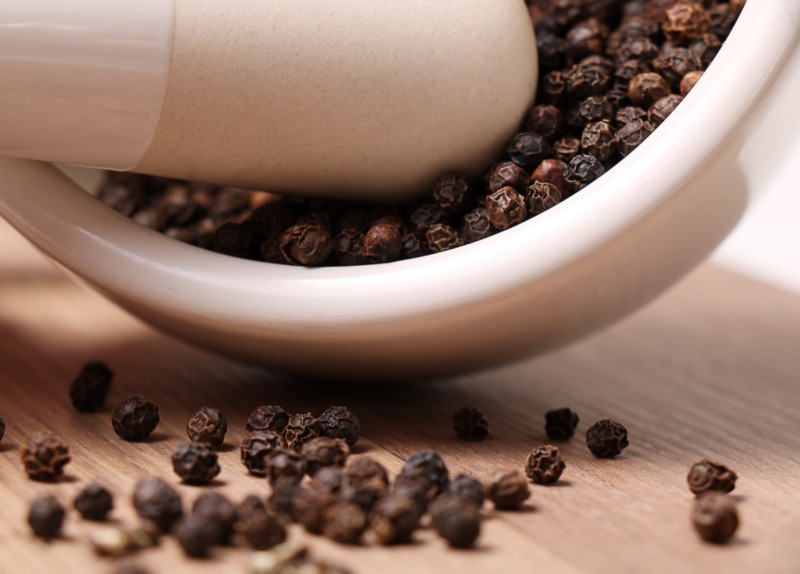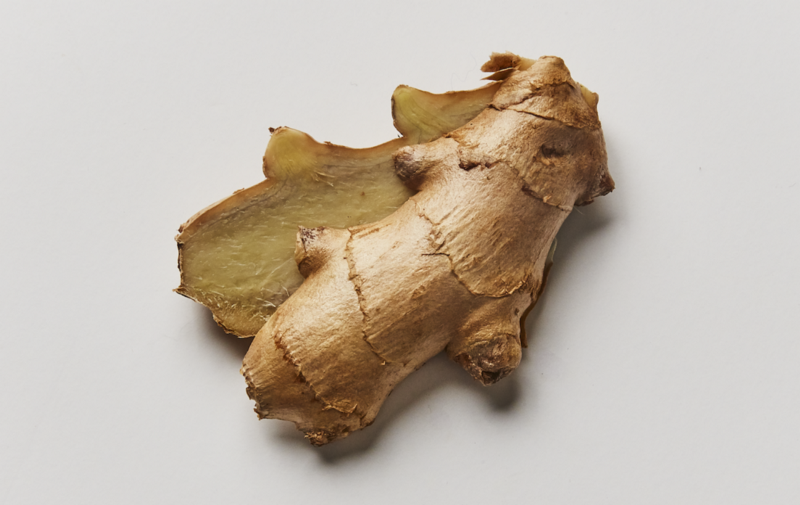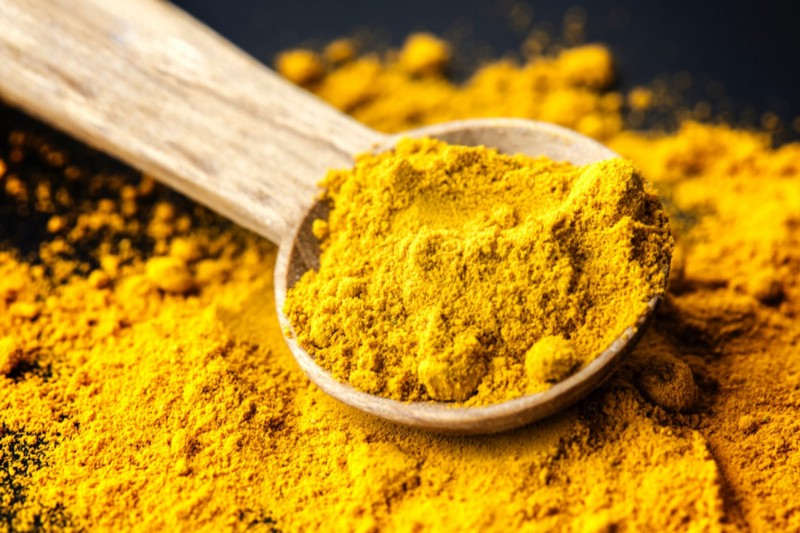
Spices can be so much more than flavor. Nutritionist, Aimee Hockett, breaks down their health benefits, and some best practices.
Splendid Spoon: We know spices add flavor, but what can they do for our health?
Aimee Hockett: Spices are nutrient-packed ingredients! They’re filled with antioxidants and have high concentrations of vitamins and minerals. I’m obsessed with spices because they’re so easy to include in our meals, and their aromas encourage our appetite towards healthy meals.
SS: Are there specific ways we should use spices to better benefit our health?
AH: Different spices come from different types and different parts of plants. The nature of every spice is unique, so they all need to be treated in their own way! Some spices should be heated to release their full nutrient potential, others shouldn’t be heated at all, and some should be heated at specific temperatures. For example, rougher plant parts like bark and roots should be included at boiling temperatures, but delicate plant parts like vanilla bean pods, flours, and seeds, should be added at lower heat temperatures.
When using spices, try to use your common sense! Do a quick search of what plant part is included in your favorite spice to decide how to treat it. This will give us context on whether we want to add the spices before or after cooking.
Splendid Spoon: When creating our recipes at Splendid we use spices both for their flavor and nutrients. These are some the ones we use most. Let’s dive into why!
AH:
Black Pepper

Flavor: Sharp! Very little aroma. Warm, acrid taste. Pairs well with savory, sour, rich flavors. Balances the flavor of very acidic (like vinegar dressings, tomato soups), fatty, or protein-rich dishes (chili, stew, creamy soups, curry). Can enhance the properties of other spices i.e. turmeric.
Health Benefits: Its flavor adds heat and warmth to dishes, and its purpose is to heat the body! It can also improve digestive symptoms like cramping, nausea, gas, bloating, constipation, or lack of appetite. It has antibacterial and antiviral properties to help boost immunity and ease chronic pain.
Cayenne Pepper
Flavor: It has a very dry heat compared to other peppers. It’s spicy, bitter, and pungent. Cayenne’s typically found in dry and powder form. It has a distinct flavor and a sharp physical effect. Pairs well with citrus, root veggies, chickpeas, garlic, onion, turmeric, peppers, nuts.
Health Benefits: Cayenne used to be used as a local analgesic (numbing agent). The seeds are also said to have antibiotic properties. Its warming flavor indicates that it can improve poor circulation to hands, feet, and organs. It’s a helpful digestive aid for gas, bloating, and low digestive enzyme production. It can help with sore throats, gut infections, and detoxing.
Cinnamon
Flavor: Sweet, sharp, earthy smell. Tastes sweet and pungent. It has a gentle, dry heat, which is complimented by savory and/or sweet flavors like vanilla, coffee, salt, and fat. Alone, large amounts of it can seem spicy and harsh, but with other elements of cooking (i.e. salt, acid, fat, and heat), it becomes sweet, mouth-watering, and gently aromatic. It’s the best flavor enhancer if you’re looking to reduce sugar intake: include some in a recipe and add more on top once the meal’s cooked. Pairs well with coconut, berries, vanilla, cocoa, nuts/nut butter, sweet potatoes, banana.
Health Benefits: Cinnamon is a great digestive aid because it promotes digestive activity. It reduces intestinal spasms and can even inhibit certain bacteria, pathogens, and viruses. It promotes a healthy appetite while sustaining blood sugar and managing hunger.
Cumin
Flavor: Sweet, spicy, hints of licorice/anise, with nutty rich undertones. It’s a dry spice that’s warm but also floral, sharp, and acrid. Pairs well with root veggies, chili powder, nuts, peppers, garlic, onion, citrus, pickles, fennel.
Health Benefits: Cumin is beneficial for digestive health symptoms like gas, bloating, cramping, and distention of the belly (severe bloating). It’s also effective for tooth pain/infection, insomnia, breast milk production, and reducing symptoms of cold or fever.
Ginger

Flavor: Ginger can be used fresh or dried, in sweet or savory dishes. It’s flavor profile is complex — it has a zesty, woody, spicy flavor. It can be used with other flavors to have a warming or cooling effect (like chai tea or lemonade). Pairs well with cinnamon, lentils, peppers, curry blends, coconut, turmeric, citrus.
Health Benefits: Ginger is beneficial for metabolism and digestive health. It helps eliminate gas, constipation, and nausea. It’s warming, so it helps improve mood and physical inflammation/pain. It’s a great blood pressure regulator and immune support for respiratory problems or illnesses. It’s commonly used for motion sickness and nausea associated with traveling or surgical operations.
Turmeric

Flavor: Turmeric can be found dried or fresh, and the flavor changes depending on how much you use, the form you use, and what you pair it with. It’s a versatile spice!
It has a bitter, pungent flavor. It can be used in place of mustard or as a more mild horseradish option. It also has notes of citrus and ginger. Pairs well with citrus, green tea, curry, tomato, vanilla, cinnamon, black pepper, paprika, garlic, onion, strawberry, lentils.
Health Benefits: Turmeric is a powerful antioxidant and antibacterial. It has strong anti-inflammatory properties which can reduce asthma, allergies, and skin conditions i.e. athlete’s foot, psoriasis, and eczema. It detoxes the liver and can lower cholesterol, reducing the risk of a major health crisis like a stroke or heart attack. It also promotes good mood by clearing out free radicals and inflammation in the brain or central nervous system. It can also help alkalize an acidic stomach environment and maintain gut mucosal lining to support a strong digestive system.
Turmeric is very effective so should be used carefully in those who have persistent digestive health symptoms. While it can help thin the blood, it can also increase bile production and flow. You should avoid or consult your healthcare practitioner if you experience gallstones or gallbladder attacks.
